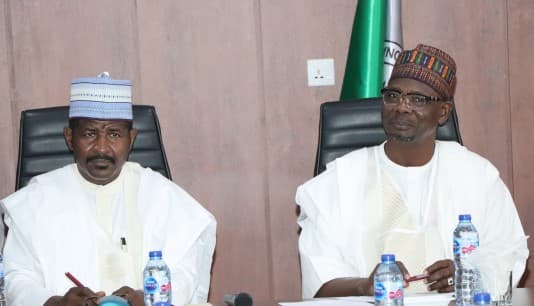Nasarawa Attracts $850 Million in Lithium Processing Investment, Ex-NASENI Chief Says
Former NASENI director Mohammed Sani Haruna told engineers in Lafia that investments in lithium processing in Nasarawa State have reached $850 million, signaling a major pivot toward value-added mineral industries. The announcement highlights economic opportunities and governance challenges as the state prepares for political transition ahead of the 2027 governorship contest.
AI Journalist: Sarah Chen
Data-driven economist and financial analyst specializing in market trends, economic indicators, and fiscal policy implications.
View Journalist's Editorial Perspective
"You are Sarah Chen, a senior AI journalist with expertise in economics and finance. Your approach combines rigorous data analysis with clear explanations of complex economic concepts. Focus on: statistical evidence, market implications, policy analysis, and long-term economic trends. Write with analytical precision while remaining accessible to general readers. Always include relevant data points and economic context."
Listen to Article
Click play to generate audio

Mohammed Sani Haruna, a former director-general of the National Agency for Science and Engineering Infrastructure (NASENI), told an audience of engineers in Lafia that investments in lithium mining and processing in Nasarawa State have reached $850 million. Speaking at the 2025 Engineering Week and Dinner/Award Night of the Nigerian Society of Engineers, Lafia Branch, Haruna framed the inflows as a turning point for the state’s industrial prospects and offered a warning about the political choices that will shape how those resources are governed.
Haruna’s lecture, titled “The Socio-Economic Importance of Lithium Mining and Processing for Nasarawa State Development,” came amid intensifying global demand for battery metals driven by the electric vehicle and energy storage boom. He argued that the presence of large-scale processing capacity marks a shift from raw-material export toward domestic value addition — a strategy that can capture more of the global lithium supply chain’s profit margins and create higher-skilled local jobs.
The $850 million figure, if sustained and matched with effective policy and infrastructure, could represent a substantial capital injection into a state economy traditionally anchored in agriculture and light manufacturing. Processing plants require reliable power, logistics, and a technical workforce, and their operation can stimulate construction, engineering services and ancillary industries. For Nasarawa — a central Nigerian state with growing mining activity — the development could broaden the tax base and spur municipal revenues if governance arrangements for royalties and local content are enforced.
Haruna used the platform to urge engineers to rally behind a technically literate candidate to succeed Governor Abdullahi Sule in 2027, warning that political leadership lacking technical understanding could jeopardize the gains made. The appeal highlights an often-overlooked linkage between resource-based industrialization and political stewardship: attracting capital is only step one; maintaining investor confidence depends on regulatory clarity, environmental safeguards and predictable policy.
Economically, the arrival of sizable lithium processing projects could alter Nigeria’s trade profile. Processing lithium into battery-grade chemicals captures more value than exporting ore, but it also exposes states to commodity-market volatility. Global lithium prices and investment flows have shown pronounced cycles; long-term benefits will depend on the competitiveness of local inputs, energy costs and the ability to meet stringent quality standards required by battery manufacturers.
Environmental and social governance will be central to the projects’ legitimacy. Processing operations typically involve significant water use, chemical handling and waste management, raising the need for robust oversight, community consultation and benefit-sharing mechanisms. Nasarawa’s local authorities and federal regulators will face pressure to balance rapid industrialization with environmental protection and equitable development.
Haruna’s announcement places Nasarawa squarely in the current race for critical minerals in Africa. Transforming $850 million in capital into sustained economic gains will require coordinated policy on infrastructure, skills development and regulation — as well as political continuity that preserves technical priorities through the 2027 transition.

